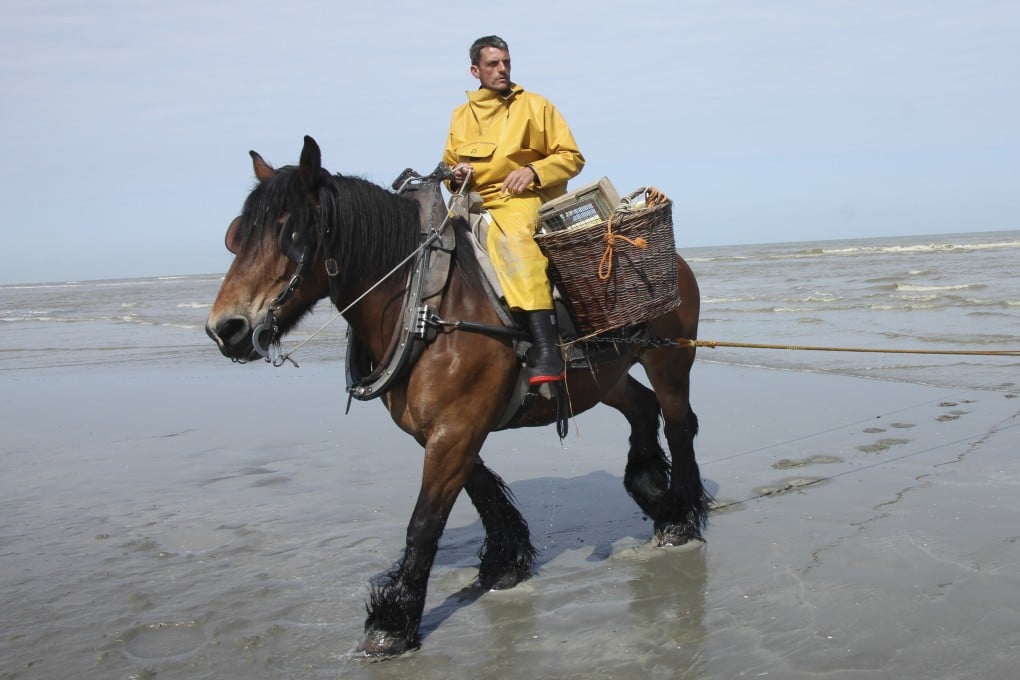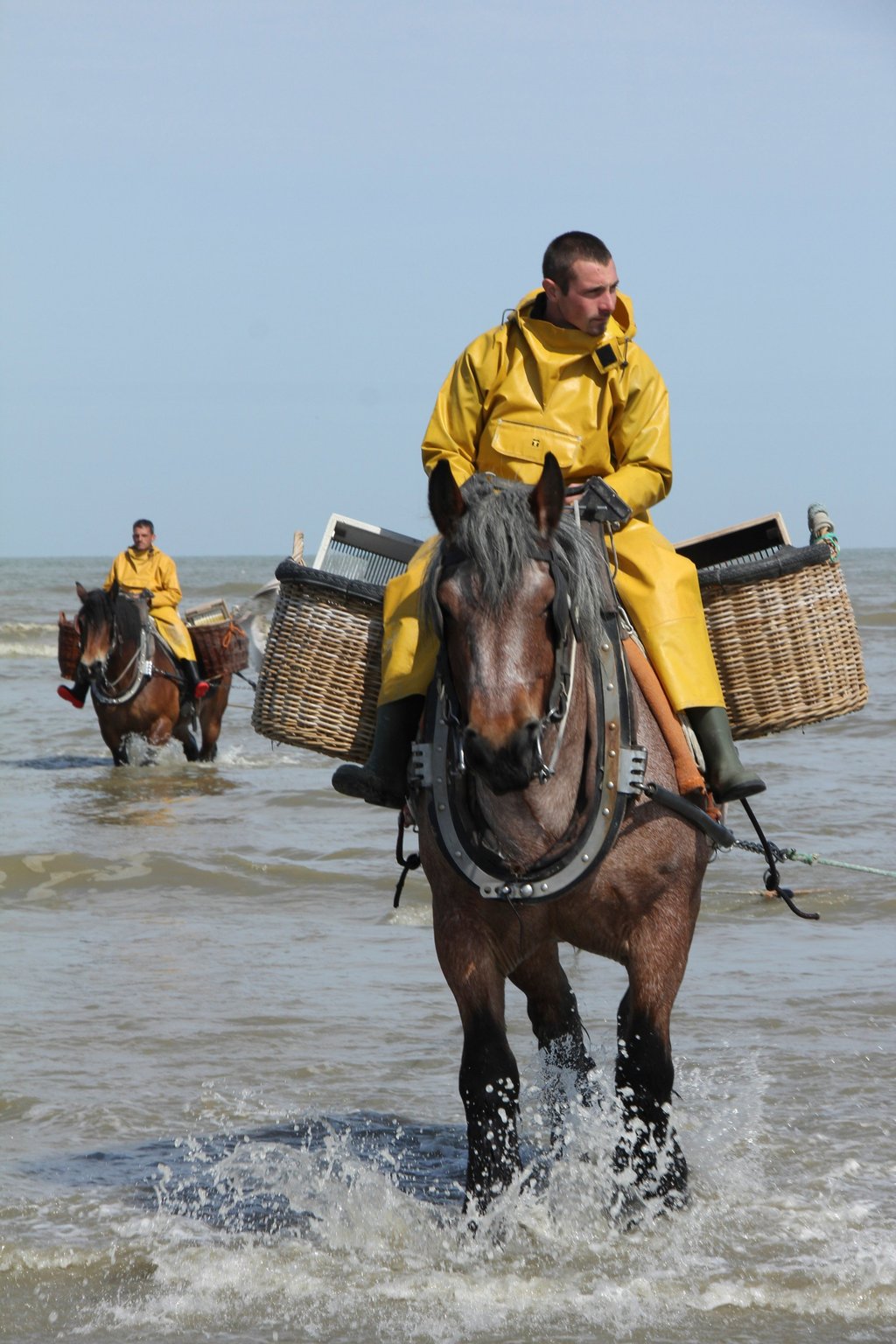Unesco intangible cultural heritage: horse-riding shrimp fishermen of Belgium who are the last of their kind
- The Belgian beach resort of Oostduinkerke is the last place where shrimp fishing on horseback is practised - and the spectacle is a sight to behold
- Visitors curious to see how the shrimp taste often tuck in at a tavern owned by a shrimper family, opposite a fisheries museum, and a brewery on the coast

The Belgian beach resort of Oostduinkerke resembles a Victorian seaside postcard, with striped windbreakers, sunbathers snoozing in deckchairs outside retro bathing huts, children building sandcastles, and families playing mini-golf.
But this is also the last place in the world where the tradition of shrimp fishing on horseback is practised.
All activity suddenly stops when a parade of half-a-dozen giant Brabant dray horses appears, pulling rickety carts as they trot across the sand towards the sea, with each of the one-tonne beasts accompanied by a rider clad in bright yellow oilskins.
These are the paardenvissers, Flemish horseback fishermen who have practised their profession for more than 500 years, their predecessors having operated along the whole of the North Sea coastline, from Germany down to France.

The last survivors are here in Oostduinkerke and were recognised in 2013 by Unesco as intangible cultural heritage.